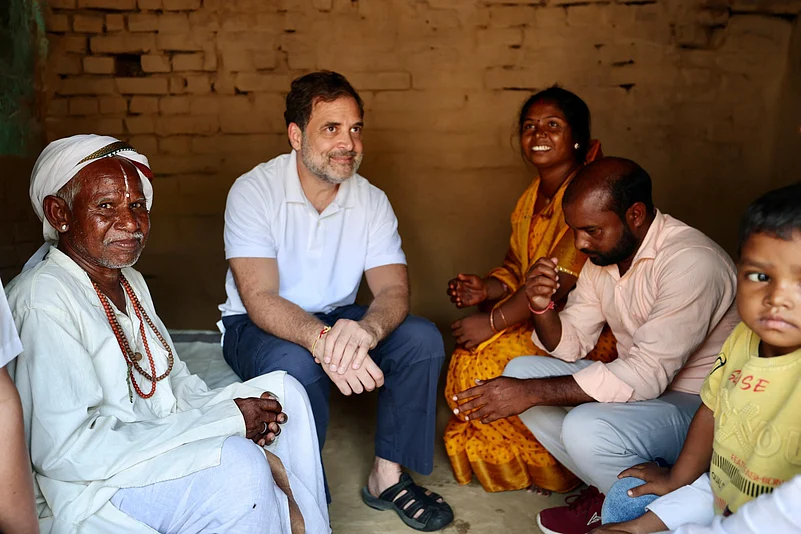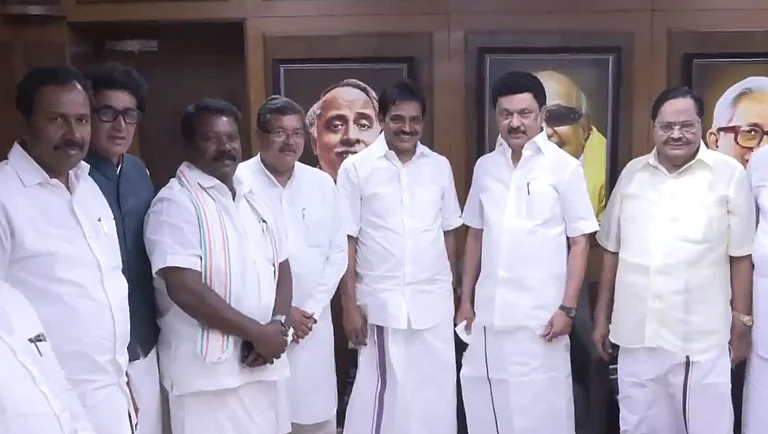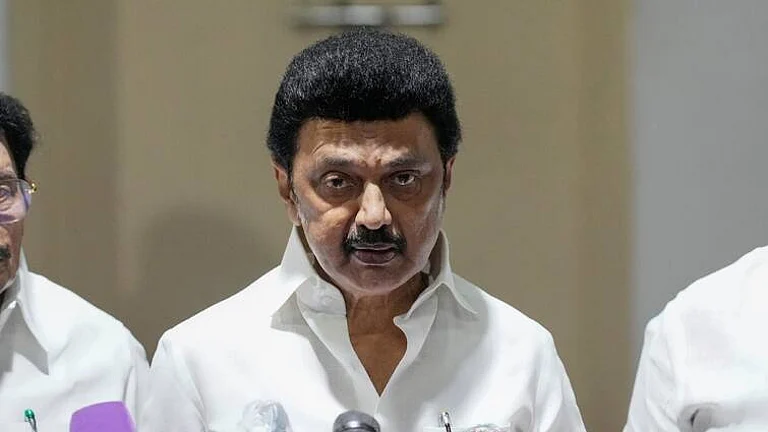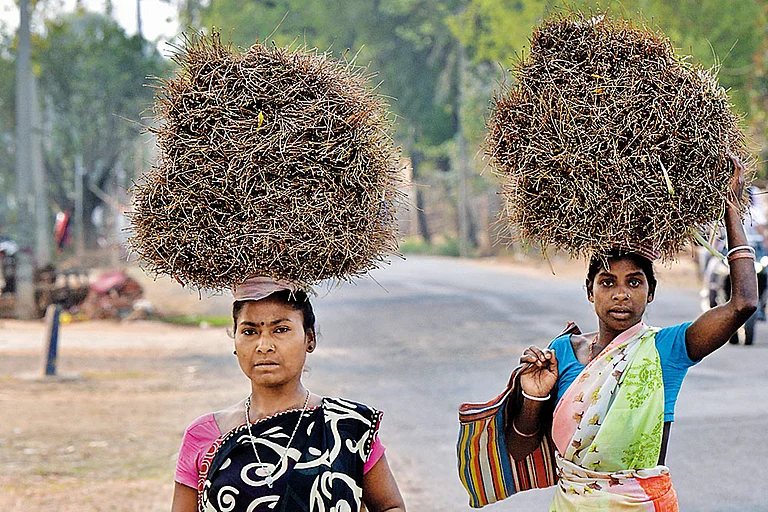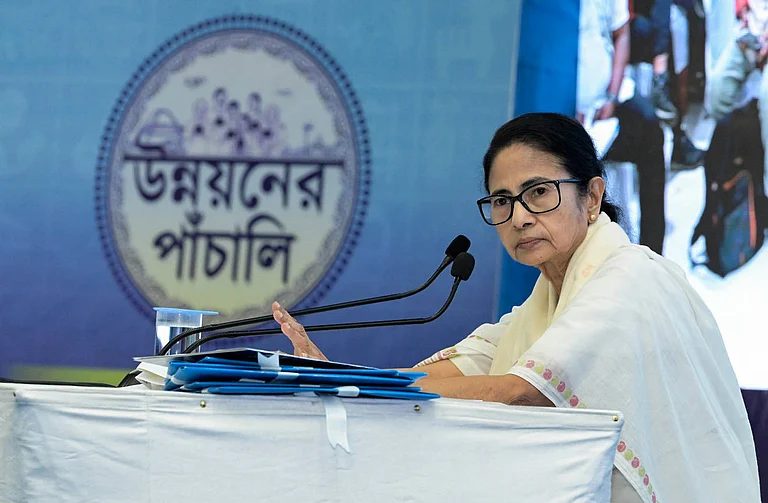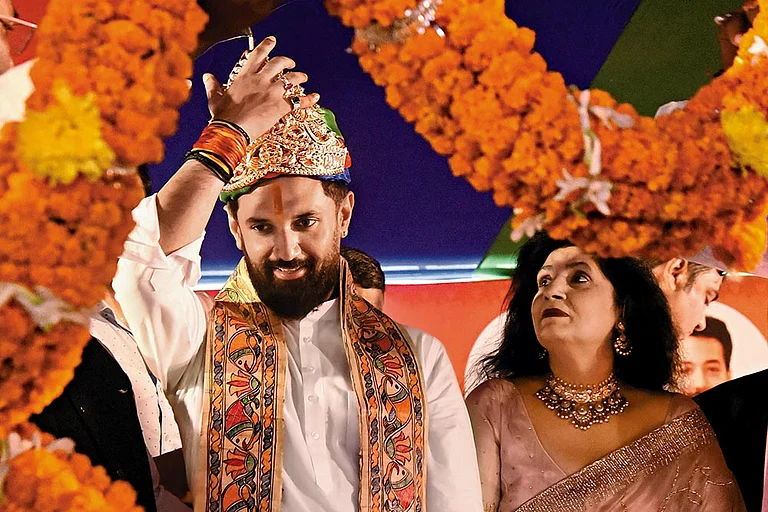“People know and respect me because of my grandfather. He has done what many leaders could not achieve. When Rahul Gandhi expressed his desire to meet me and my family, I was delighted. He not only came to my house to meet me and my family but asked me as to what he and his party could do for my family. I immediately asked for a ticket in the upcoming State Assembly elections. I know he will give me the ticket. He has assured me about it. How can one forget the contribution of my family towards the village?”. These are the words of Anshu Kumari, granddaughter of the ‘Mountain man of India,’ Dashrath Manjhi.
Anshu Kumari continues, “I work as an Anganwadi teacher. I have been looking after my handicapped father and family. My husband does farming on our very small piece of ancestral land. I want to carry the legacy of my grandfather by contesting and winning election. I am looking forward to getting the ticket from Bodh Gaya. I will definitely win. This will help me and my family in leading a life with sustainable income and respect. That was a life my grandfather wanted.”
(Dashrath Manjhi, had become famous across the country after he carved a path through a mountain in Bihar, as a mark of respect to his late wife. He wanted to provide his village with easier access to medical care. His wife, Faguniya, had died due to lack of timely medical attention because a mountain had blocked access to medical care. Determined to prevent others from suffering the same fate, Manjhi single-handedly carved a road through the mountain using only a hammer and chisel, saving countless other lives. Many movies have been made on his life across the country.)
Anshu Kumari, a confident 28-years-old woman belonging to the Bhuiyan caste (Mahadalit category), recently came to the limelight when Rahul Gandhi visited her ancestral home at Gehrol village in Gaya on June 6 this year, to pay homage to Dashrath Manjhi. Spread in 2.5 katha (0.078) acres, her house has been constructed primarily with straw, mud, with only a small part of the roof made with cement and wood (not a pakka house). Though many leaders and celebrities had visited her house and assured to build her a house, the promise is yet to be fulfilled.
Prem Shankar Mishra, veteran leader, Congress, on being asked about allocating tickets to women candidates (to the likes of Anshu Kumari) in the upcoming Assembly election, is of the opinion that it is too early to clearly state anything. He says, “There is still time to give any input since the party has not planned anything separately in this regard. Since we are part of the Grand Alliance (INDIA bloc), we have to wait and watch for the number of seats being allotted to us. There are many considerations that have to be taken into account before allotting the tickets to women. We need to assess the winning possibility of the candidates. It will take three to four weeks’ time to get a clearer picture.”
He continues, “Winning prospects and contribution towards the progress of the party have to be taken into account before allocation of seats. A potential candidate can be woman, a man from Dalit or OBC category. If the High command or central leadership has given assurance to any probable candidate, priority will definitely be given to that person.”
Whether Anshu Kumari will get the ticket for the upcoming Assembly elections is yet to be seen. In Bihar, women constitute approximately 48 per cent of the total population, which means that nearly half of the population is female. The 2011 Census recorded a total population of over 10.38 crores, with 4.96 crores being women. However, when it comes to allocation of seats to women candidates and their winning graph, the picture is not encouraging at all. In the 2019 Lok Sabha Elections in Bihar, only 9% (56) women candidates contested in the elections and out of 40 overall winners, only three were women. In 2020 Bihar Assembly election, the ruling Janata Dal(United) had given tickets to 22 women out of the total 115 seats it was allocated as part of the National Democratic Alliance (NDA).
Bharatiya Janata Party (BJP) had fielded 12 women candidates from the 110 seats where it contested. In the Grand Alliance, the Rashtriya Janata Dal (RJD) had fielded 16 women and the Congress seven while the Left parties just had one woman candidate. The data presents a grim picture. Though participation of women voters surpassed men's turnout in the last Lok Sabha elections in the state (59%), their representation in the state assembly remains extremely low.
D M Diwakar, political analyst and former director of A N Sinha institute feels that social justice has still not been delivered to the women of Bihar, especially those belonging to the poverty stricken and backward social structure. And he attributes this as the primary reason for their poor representation in Assembly election too. He says, “India was one of the first few nations that introduced adult franchise both for men and women. (Even England did not first introduce this system for females, it was solely for men.)
However, when there were discussions on assigning leadership roles to women, male dominance and patriarchal thought process came to the forefront. Bihar was the first state in India to reserve 50 per cent of seats for women in Panchayati Raj Institutions (PRIs). However, when discussions around seat allocation to women for elections crops up, the party often talks about increasing the number of seats instead of allocating more tickets to women candidates. Politicians do not want their seats to be allocated to women candidates. Patriarchy is still dominant in politics making it difficult for women to get tickets and contest from the constituency of their choice.”
He continues, “The benefits of reservation are unfortunately being enjoyed by a handful of few rich and well to do families. Even after providing 50 per cent reservation in PRIs, shadow politics is very much active. Though some changes are evident in the political set up, the concepts of Mukhiya pati, sarpanch pati, pramukh pati (where the husband of an elected female village head assumes the role of decision-maker, and thereby, sidelining his wife) is still very much prevalent in the system.”
D M Diwakar feels that earlier political parties used to fund the candidates who are contesting elections. Now-a-days, the party takes fund and prefers candidates with strong financial background. The entire process of election has become expensive. Party also sees the winning possibilities of candidates. It must choose the right person, irrespective of male or female. Though there are women cells operational under different parties across the state, the same are being run by males.
Poll strategist Prashant Kishor’s Jan Suraaj party (JSP) had been one of the first parties in Bihar to announce 40 women to be contesting in 40 seats across Bihar. Anukriti, State spokesperson, Jan Suraaj Party, says, “This is not just about giving 40 tickets. Prashant Kishore has made sure of women being represented even as we work tirelessly towards the elections. Every frontal or sub-committee at JSP, has adequate women representation. Change does not happen overnight and 40 tickets is going to be no magic formula either. But with these steps, I am sure that we are at least doing our in-depth preparation towards the goal of women empowerment in Bihar.”
Anukriti, who has herself been a Civil Servant with the Indian Railways (UPSC batch of 2008), feels that if the intent of political parties in Bihar was genuinely egalitarian, there would have been no hesitation in bringing more and more women into the political fold. She continues, “Socio-economic empowerment of women will be one of our top most priorities. Political equality will definitely be a by-product of that effort.”
Nitish Kumar Tantan, former State President, Sawaran (upper caste) Cell JD (U), says, “Through internal survey, lists received from the districts and reports from Assembly constituency in-charge, we try to give chance to the strongest of candidates in the Assembly elections, irrespective of gender. Those workers who are dedicated towards the party and extremely popular in the constituency, will definitely be given priority. Though our party fully supports the Women Reservation Bill, we cannot introduce reservation of seats unless we get the nod from Central Government or the Bill becomes an Act.”
He mentions the different schemes launched by the party for women empowerment. “Initiatives like cycle scheme for girls, 50 per cent reservation to women in panchayats, primary agriculture credit societies, cooperative societies, 35 per cent reservation of women in government jobs or even total prohibition in Bihar have been widely appreciated all across the country and we are committed towards women empowerment”, he says.
Though meetings and extensive discussions are being held with inputs received from across the state by different political parties, focussing on addressing key issues, it has to be seen whether focus on increasing the number of women elected to the assembly and addressing issues specific to women's empowerment are a matter of priority for different political parties. As Bihar's political landscape is heating up, it would be worth noticing whether decision of all the political parties talking about giving equal representation to women, during ticket distribution in the polls, is real or remains a false promise and whether woman like Anshu Kmari finally get a chance to contest elections.







